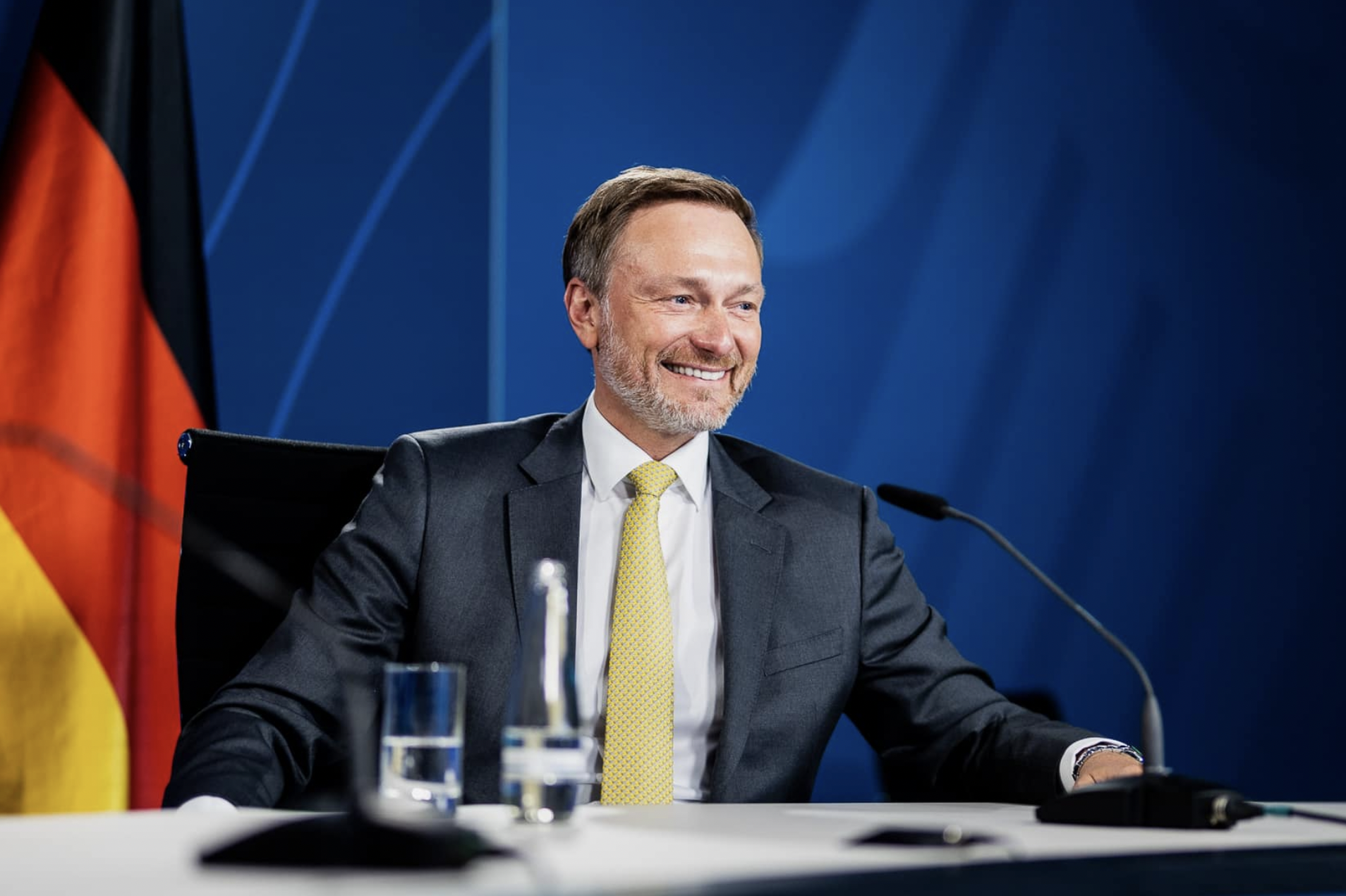
Germany’s finance minister has joined a growing chorus of government officials—past and present—and leaders of business and industry who have warned that an economic crisis, the likes of which the country has not seen in many decades, is now beginning to come into view.
During an appearance on the state-funded television broadcaster Zweites Deutsches Fernsehen’s political talk show “Heute Journal” on Tuesday evening, Finance Minister Christian Lindner (FDP) warned his fellow countrymen and women that a massive economic downturn is on the horizon, citing skyrocketing energy prices, rampant inflation, and ongoing supply-chain issues.
“There is a risk of an economic crisis that has to be taken very seriously due to the sharp increase in energy prices, due to supply chain problems, and also due to inflation,” the finance minister, who heads the liberal, pro-business Freie Demokratische Partei, told the show’s host Christian Sievers.
For Lindner, the foremost goal of Germany’s ruling ‘traffic light’ coalition government, should be to do everything in its power to restrain rising inflation “not only because of the economy but because many people also have concerns about whether they can afford to live.”
The minister then expressed concern that in just a “few weeks or months [Germany] could have a very worrying situation” on its hands, adding that he expects the country to experience “three to five years of scarcity.”
At this stage, however, the coalition has been unable to reach an agreement on how to combat the out-of-control cost of living increases that have come about as a result of exploding energy costs and soaring inflation. While the left-liberal Sozialdemokratische Partie Deutschlands (SPD) and Bündnis 90/Die Grünen (Greens) are staunchly opposed to domestic fracking and the continuation of nuclear energy to compensate for the lack of gas deliveries from Russia, the FDP argues that both should remain on the table as viable options.
“We can also use our own energy supply options. For example, the domestic gas and oil deposits are now much more economical than they were a few months ago due to the rise in world market prices,” Linder argued, adding that “there must be no taboos when it comes to controlling price developments for people.”
As things presently stand, Germany’s three remaining nuclear reactors are scheduled to go offline by the end of this year at the latest, per the Atomic Energy Act.
A day later, Lindner’s sentiments were echoed by his predecessor, SPD politician and former finance minister Peer Steinbrück, who also warned that the country is set to face “three to five very difficult years.”
The former finance minister predicted that unemployment would likely rise considerably, emphasizing that the German population had not yet come to realize the severity of the situation at hand.
“I believe that the civilian population has not yet, because of certain inertia, understood what this turning point means,” Steinbrück said during an appearance on the Maischberger talk show.
